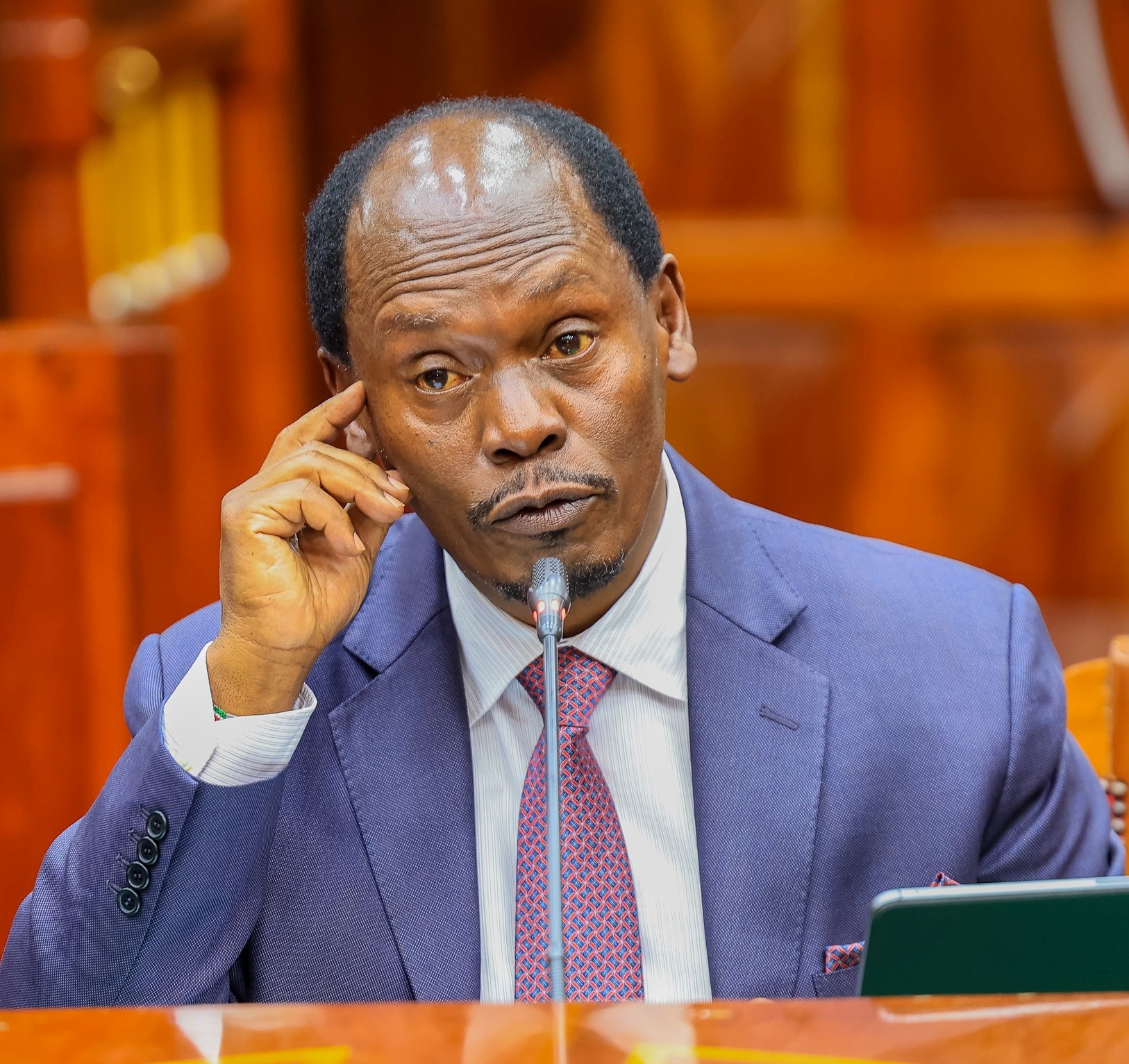ICT Cabinet Secretary William Kabogo has suffered a major setback following the Court of Appeal’s decision to overturn a High Court ruling in a multi-billion-shilling land dispute involving his uncle, Kimani Kabogo. The High Court had dismissed the lawsuit in which the CS had been accused of fraudulently taking possession of land belonging to Kimani.
A three-judge bench, consisting of Justices George Odunga, Aggrey Muchelule, and Abidah Ali Aroni, ruled in favour of Kimani, concluding that the High Court had erred in striking out the lawsuit. The judges emphasised the merits of the appeal, directing that the case be retried by a judge other than Justice Lucy Gacheru, who had originally dismissed the case seeking to establish that Kabogo had fraudulently acquired the property without his uncle’s consent.
The appeal judges remarked, “Having considered the issues raised before us, we find merit in this appeal, which we hereby allow. We set aside the decision of the learned judge allowing the preliminary objections and substitute it with a decision dismissing the preliminary objections.”
They went on to add, “We direct that the matter be heard and determined in the usual manner before a judge other than Judge Gacheru. The costs of this appeal are awarded to the appellant (Kimani).”
The case revolves around a long-standing dispute over properties in Runda, which Kabogo allegedly sold without his uncle’s consent, despite an agreement to hold the land in trust.
According to Kimani, the land was initially registered in his name in March 1998. He used the property as collateral for loans from NIC Bank and ICDC, but after failing to service the loans due to high interest rates, he turned to his nephew for assistance.
The court papers reveal that Kimani used one of the properties to secure a loan of Sh10 million from NIC Bank and another property to secure a loan of Sh5 million from ICDC.
“That sometime in September 2000, as Kimani was unable to service the facilities due to exorbitant interest rates, he sought the help of Kabogo, who paid off the loan due to NIC Bank to avert the sale of LR.No.12825/27 and 12825/34 by public auction. He also sought the assistance of Kabogo in 2003 to salvage LR.No.12825/33, which was on the verge of being auctioned by ICDC for recovery of the aforesaid loan,” the court papers state.
“The understanding was for CS Kabogo to hold the suit properties in trust for himself and his uncle until such time when the properties would be sold at market value and/or developed, and the proceeds shared equally between the two parties,” he says.
Kimani claims that his nephew, Kabogo, agreed to hold the land in trust. However, in 2006, Kimani says he discovered that Kabogo had sold portions of the land and undertaken developments, including a real estate project, without informing him.
“According to the appellant (Kimani), when in 2006 he sought to find out the status of the said properties from Kabogo so that they could reduce the oral agreement between them into writing, the CS avoided him after he discovered that the nephew had alienated the said properties contrary to and in breach of their oral agreement,” the Court of Appeal heard.
“After we agreed that we would work together to develop the property, I learned that he had sold the land without telling me. He even evicted me from my house on the property and demolished my coffee factory and workers’ camp,” Kimani explained in his statement to the court.
He estimates the damages caused by his nephew’s actions at Kshs.387.8 million.
The ICT CS, however, denies these allegations before the Court of Appeal, arguing that the transactions were legal and above board.
In his defence, Kabogo claims the properties were sold through a private treaty after NIC Bank and ICDC exercised their statutory power of sale to recover loans owed by Kenya Modern Digitals Ltd, a company that had been guaranteed by Kimani.
The CS insists that his uncle had consented to the sale and had signed the necessary transfer documents at the request of the bank.
“It was a legal transaction, and there is no basis for the claims made against me,” CS Kabogo stated.
He further contended that the lawsuit is barred by the statute of limitations and that any claim based on an oral agreement over the properties should be dismissed, citing Section 3(3) of the Law of Contract Act, which requires contracts relating to land to be in writing.
Despite his defence, the Court of Appeal dismissed the preliminary objections raised by CS Kabogo’s legal team, highlighting the importance of hearing evidence from both sides.
Justice Ali Aroni, who led the bench, emphasised that the matter could not be settled through summary proceedings based on preliminary objections alone.
“With due respect to the learned judge, the findings of fact above could only have been determined with finality after hearing the evidence of the parties in the usual manner,” Justice Aroni said.





